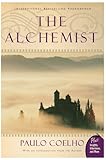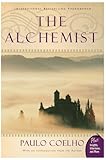Developing Awareness

“We always have a tendency to see those things that do not exist and to be blind to the great lessons that are right there before our eyes.”
–Paulo Coelho (Brazilian Writer, 1947-)

“The Pilgrimage: A Contemporary Quest for Ancient Wisdom” (Paulo Coelho)
What Is The Other?

“What is the Other?” they ask.
“The Other is the one who taught me what I should be like, but not what I am.”
“The Other believes that it is our obligation to spend our entire life thinking about how to get our hands on as much money a possible so that we will not die of hunger when we are old. So we think so much about money and our plans for acquiring it that we discover we are alive only when our days on earth are practically done. And then it’s too late.”
And you? Who are you?” I am just like everyone else who listens to their heart: a person who is enchanted by the mystery of life. Who is open to miracles, who experiences joy and enthusiasm for what they do. It’s just that the Other, afraid of disappointment, kept me from taking action.”
“But there is suffering in life,” one of the listeners said. “
And there are defeats. No one can avoid them. But it’s better to lose some of the battles in the struggle for your dreams than to be defeated without ever even knowing what you’re fighting for.” That’s it?” another listener asked.
“Yes, that’s it. When I learned this, I resolved to become the person I had always wanted to be. The Other stood there in the corner of my room, watching me, but I will never let the Other into myself again—-even though it has already tried to frighten me, warning me that it’s risky not to think about the future. From the moment that I ousted the Other from my life, the Divine Energy began to perform its miracles.”
–Paulo Coelho (Brazilian Writer, 1947-)

“By the River Piedra I Sat Down and Wept: A Novel of Forgiveness” (Paulo Coelho)
Not Confusing the Teacher and the Teaching
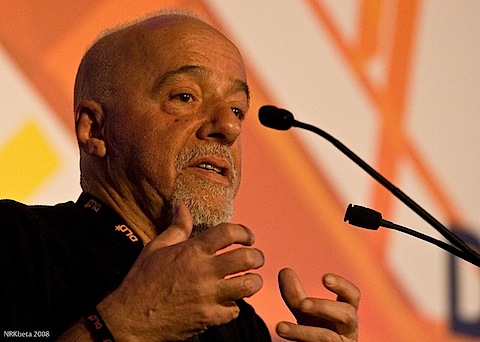
“Everyone’s looking for the perfect teacher, but although their teachings might be divine, teachers are all too human, and that’s something people find all too hard to accept. Don’t confuse the teacher with the lesson, the ritual with the ecstasy, the transmitter of the symbol with the symbol itself. The Tradition is linked to our encounter with the forces of life and not with the people who bring this about. But we are weak: we ask the Mother to send us guides, and all she sends are signs to the road we need to follow. Pity those who seek for shepherds, instead of longing for freedom! An encounter with superior energy is open to anyone but remains far from those who shift responsibility onto others. Our time on earth is sacred and we should celebrate every moment.”
–Paulo Coelho (Brazilian Writer, 1947-)
The World’s Greatest Lie!

“What’s the world’s greatest lie?…. It’s this: that at a certain point in our lives, we lose control of what’s happening to us, and our lives become controlled by fate. That’s the world’s greatest lie.”
–Paulo Coelho (Brazilian Writer, 1947-)
Following Your Path

“Man improves himself as he follows his path; if he stands still, waiting to improve before he makes a decision, he’ll never move.”
–Paulo Coelho (Brazilian Writer, 1947-)
A Tale Worth Thinking About!
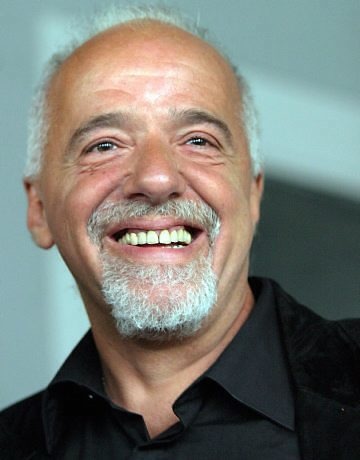
I first heard an old version of this tale in an old Sufi teaching story, on the perils of mindless conformity.
Here is a new re-telling by a truly great writer who sees more deeply into the world than most.
“Once upon a time, powerful wizard, who wanted to destroy an entire kingdom, placed a magic potion in the well from which the inhabitants drank. Whoever drank that water would go mad.
The following morning, the whole population drank from the well and they all went mad, apart from the king and his family, who had a well set aside for them alone, which the magician had not managed to poison. The king was worried and tried to control the population by issuing a series of edicts governing security and public health.
The policemen and the inspectors, however, had also drunk the poisoned water, and they thought the king’s decisions were absurd and resolved to take no notice of them. When the inhabitants of the kingdom heard these decrees, they became convinced that the king had gone mad and was now giving nonsensical orders. They marched on the castle and called for his abdication. In despair the king prepared to step down from the throne, but the queen stopped him, saying: ‘Let us go and drink from the communal well. Then we will be the same as them.’
And that was what they did: The king and queen drank the water of madness and immediately began talking nonsense. Their subjects repented at once; now that the king was displaying such ‘wisdom’, why not allow him to rule the country? The country continued to live in peace, although its inhabitants behaved very differently from those of its neighbors. And the king was able to govern until the end of his days.”
–Paulo Coelho (Brazilian Writer, 1947-)
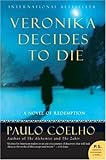
When You Get Better Everyone Gets Better

“This is why alchemy exists,” the boy said. “So that everyone will search for his treasure, find it, and then want to be better than he was in his former life. Lead will play its role until the world has no further need for lead; and then lead will have to turn itself into gold. That’s what alchemists do. They show that, when we strive to become better than we are, everything around us becomes better, too.”
–Paulo Coelho (Brazilian Writer, 1947-)


